This article needs additional citations for verification .(November 2023) |
The March Against the Vietnam War was held in Washington, D.C., on 17 April 1965. [1]
This article needs additional citations for verification .(November 2023) |
The March Against the Vietnam War was held in Washington, D.C., on 17 April 1965. [1]
The student activist group Students for a Democratic Society (SDS) held its first anti-Vietnam War protest rally in Washington, DC. [1] It was co-sponsored by Women's Strike for Peace. [2] 12,000-20,000 attended, including Joan Baez, Judy Collins, and Phil Ochs. [3] [4] [1] The host was I. F. Stone. [5]
Senator Ernest Gruening of Alaska, [3] a World War I veteran and one of the two senators who voted against the Tonkin Gulf Resolution that gave credence to the direct combat role of the U.S. in the Vietnam War and allowed bombing of Vietnam without prior Congressional approval, spoke.[ citation needed ]
After the speeches and music the crowd started to move toward the Capitol, down the National Mall from the Washington Monument. Baez and others intercepted the impromptu march.[ citation needed ]

Joan Chandos Baez is an American singer, songwriter, musician, and activist. Her contemporary folk music often includes songs of protest and social justice. Baez has performed publicly for over 60 years, releasing more than 30 albums. Fluent in Spanish and English, she has also recorded songs in at least six other languages.

Lyndon Baines Johnson, often referred to by his initials LBJ, was an American politician who served as the 36th president of the United States from 1963 to 1969. He became president after the assassination of John F. Kennedy, under whom he had served as the 37th vice president from 1961 to 1963. A Democrat from Texas, Johnson also served as a U.S. representative and U.S. senator.
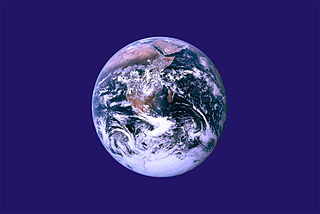
Earth Day is an annual event on April 22 to demonstrate support for environmental protection. First held on April 22, 1970, it now includes a wide range of events coordinated globally by EARTHDAY.ORG including 1 billion people in more than 193 countries. The official theme for 2023 is "Invest In Our Planet".

Beginning in late 2002 and continuing after the 2003 invasion of Iraq, large-scale protests against the Iraq War were held in many cities worldwide, often coordinated to occur simultaneously around the world. After the biggest series of demonstrations, on February 15, 2003, New York Times writer Patrick Tyler claimed that they showed that there were two superpowers on the planet: the United States and worldwide public opinion.
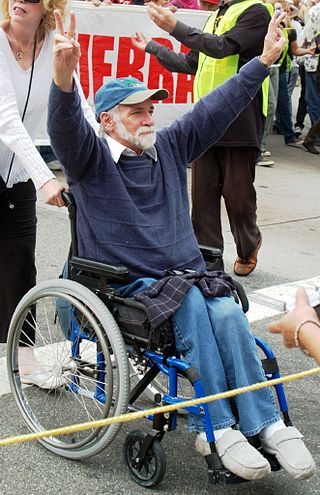
Ronald Lawrence Kovic is an American anti-war activist, writer, and United States Marine Corps sergeant who was wounded and paralyzed in the Vietnam War. His 1976 memoir Born on the Fourth of July was made into the film of the same name which starred actor Tom Cruise as Kovic, and was co-written by Kovic and directed by Oliver Stone.
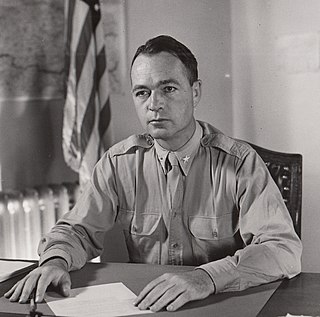
Telford Taylor was an American lawyer and professor. Taylor was known for his role as lead counsel in the prosecution of war criminals after World War II, his opposition to McCarthyism in the 1950s, and his outspoken criticism of American actions during the Vietnam War.
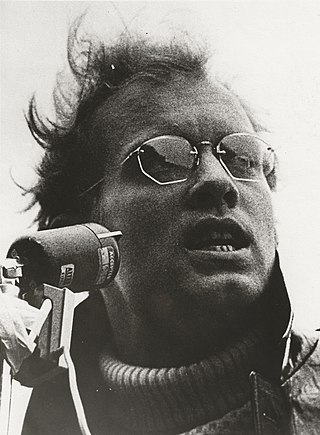
David Victor Harris was an American journalist and activist. After becoming an icon in the movement against the Vietnam War, organizing civil disobedience against military conscription and refusing his own orders to report for military duty, for which he was imprisoned for almost two years, Harris went on to a 50-year career as a distinguished journalist and author, reporting national and international stories.
A teach-in is similar to a general educational forum on any complicated issue, usually an issue involving current political affairs. The main difference between a teach-in and a seminar is the refusal to limit the discussion to a specific time frame or a strict academic scope. Teach-ins are meant to be practical, participatory, and oriented toward action. While they include experts lecturing on their area of expertise, discussion and questions from the audience are welcome, even mid-lecture. "Teach-ins" were popularized during the U.S. government's involvement in Vietnam. The first teach-in, which was held overnight at the University of Michigan in March 1965, began with a discussion of the Vietnam War draft and ended in the early morning with a speech by philosopher Arnold Kaufman.

Opposition to United States involvement in the Vietnam War began with demonstrations in 1965 against the escalating role of the United States in the Vietnam War and grew into a broad social movement over the ensuing several years. This movement informed and helped shape the vigorous and polarizing debate, primarily in the United States, during the second half of the 1960s and early 1970s on how to end the Vietnam War.

The Moratorium to End the War in Vietnam was a massive demonstration and teach-in across the United States against the United States involvement in the Vietnam War. It took place on October 15, 1969, followed a month later, on November 15, 1969, by a large Moratorium March in Washington, D.C.

The proposed invasion of Afghanistan prompted protests with mass demonstrations in the days leading up to the official launch of the war on October 7, 2001. The continuation of the war in Afghanistan from 2001 to 2021 lead to further protest and opposition to hostilities.

Vietnam Veterans Against the War (VVAW) is an American tax-exempt non-profit organization and corporation founded in 1967 to oppose the United States policy and participation in the Vietnam War. VVAW is a national veterans' organization that campaigns for peace, justice, and the rights of all United States military veterans. It publishes a twice-yearly newsletter, The Veteran; this was earlier published more frequently as 1st Casualty (1971–1972) and then as Winter Soldier (1973–1975).
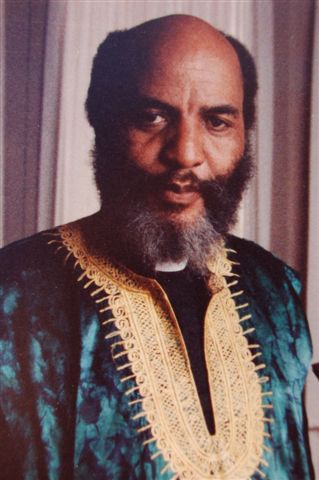
James Luther Bevel was an American minister and leader of the 1960s Civil Rights Movement in the United States. As a member of the Southern Christian Leadership Conference (SCLC), and then as its Director of Direct Action and Nonviolent Education, Bevel initiated, strategized, and developed SCLC's three major successes of the era: the 1963 Birmingham Children's Crusade, the 1965 Selma voting rights movement, and the 1966 Chicago open housing movement. He suggested that SCLC call for and join a March on Washington in 1963. Bevel strategized the 1965 Selma to Montgomery marches, which contributed to Congressional passage of the 1965 Voting Rights Act.
The Spring Mobilization Committee to End the War in Vietnam, which became the National Mobilization Committee to End the War in Vietnam, was a coalition of American antiwar activists formed in November 1966 to organize large demonstrations in opposition to the Vietnam War. The organization was informally known as "the Mobe".
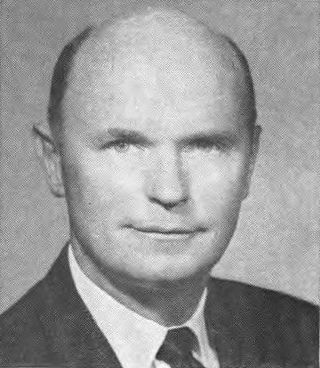
Roger Herschel Zion was an American World War II veteran and politician who served in the United States House of Representatives from Indiana from 1967 through 1975.

In the 1960s, several "be-ins" were held in Central Park, Manhattan, New York City to protest against various issues such as U.S. involvement in the Vietnam War and racism.
James Peck was an American activist who practiced nonviolent resistance during World War II and in the Civil Rights Movement. He is the only person who participated in both the Journey of Reconciliation (1947) and the first Freedom Ride of 1961, and has been called a white civil rights hero. Peck advocated nonviolent civil disobedience throughout his life, and was arrested more than 60 times between the 1930s and 1980s.
1968 in the United States was marked by several major historical events. It is often considered to be one of the most turbulent and traumatic years of the 20th century in the United States.